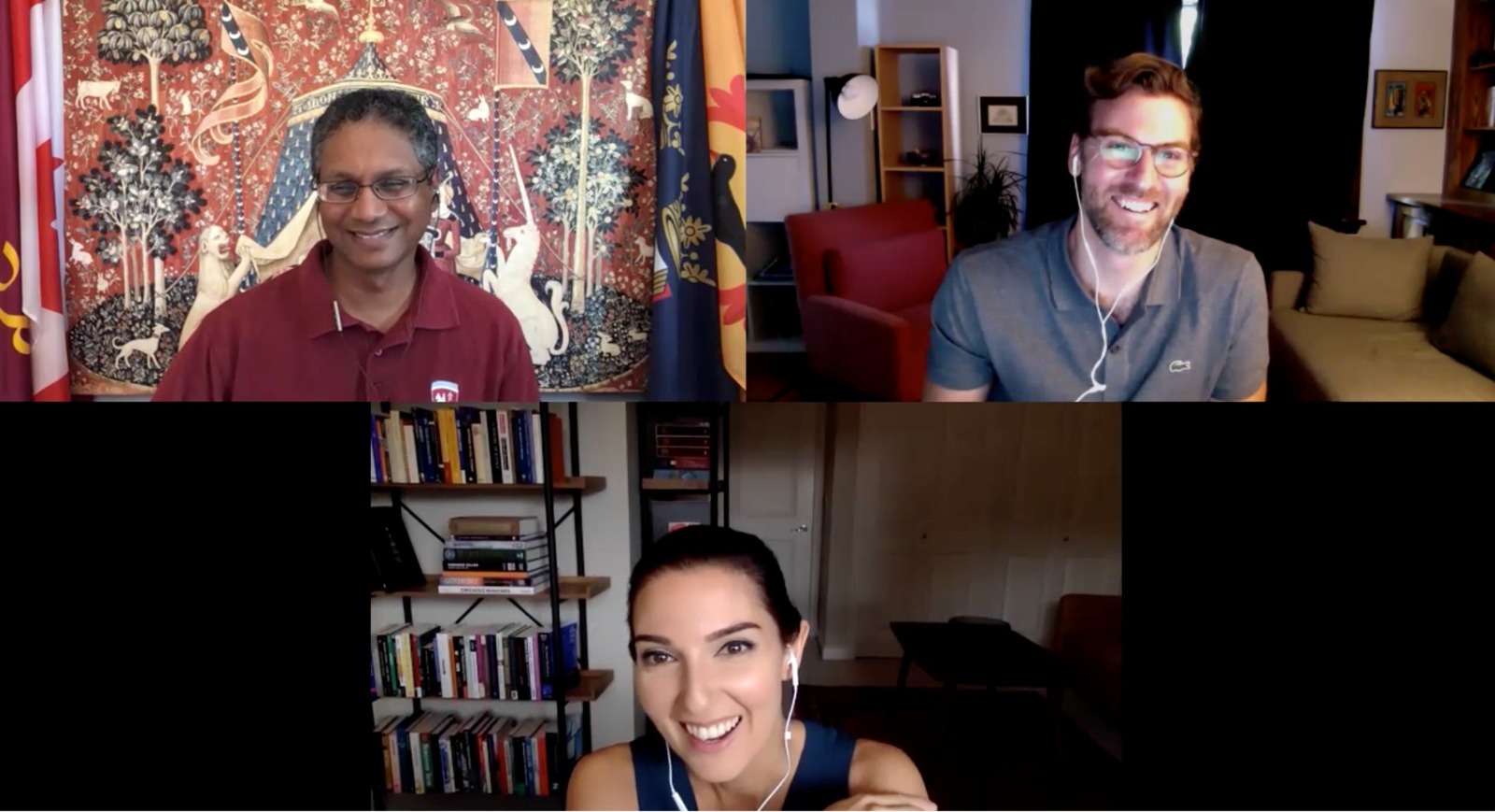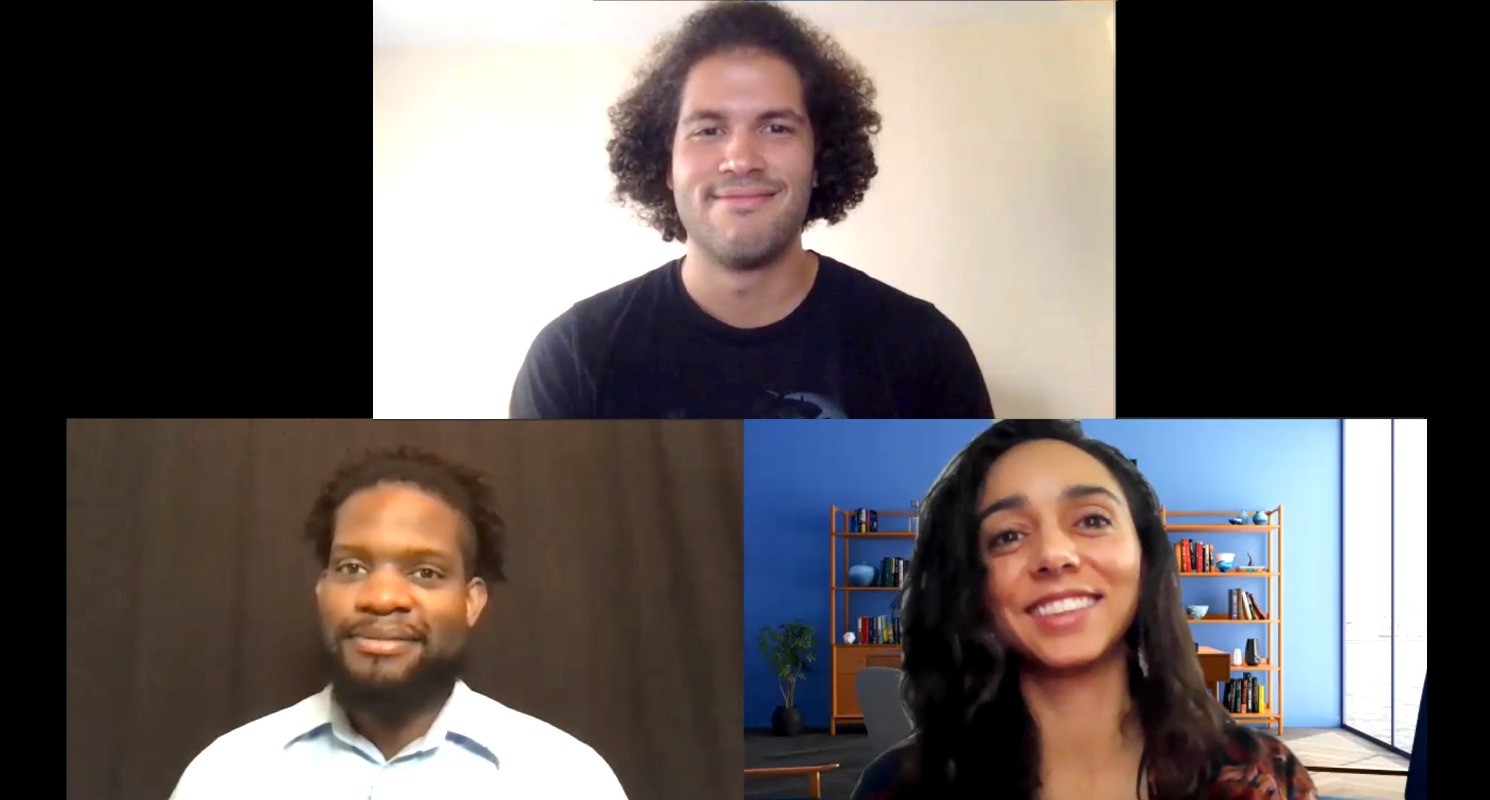A new podcast mini-series has been launched by the Baha’i Community of Canada’s Office of Public Affairs to explore how we can work together to rebuild society after the coronavirus pandemic.


“Our first mini-series was focused on how people, communities, and institutions are finding ways to be resilience in the face of the coronavirus crisis,” said Geoff Cameron, Director of the Office of Public Affairs. The seven episodes of that series have been listened to more than 4000 times. He continued, “The coronavirus revealed certain truths about the values we want to characterize our society. Now we have the opportunity to think about how those values can be brought into practice. That is what we want to explore in this new series.”
The first episode of the series is titled, “Rethinking and Rebuilding,” and it features Dr. Cameron in conversation with Shahrzad Sabet and Akaash Maharaj. Dr. Sabet lives in Vancouver and is a Research Fellow with the Institute for Public Knowledge at New York University. Maharaj is the CEO of the Mosaic Institute in Toronto.
Their conversation focuses on how concepts and principles, like love, justice, and oneness, can help us to think about many of the challenges facing our society as we look ahead to rebuilding after COVID-19. They talk about identity and oneness, systemic racism, the nature of dialogue, and the role that love and empathy play in fostering social solidarity.
Dr. Sabet noted that the past several months have shown us how interdependent we are, but also how structural inequalities and systemic racism continue to divide our societies. She suggested that we need new language and concepts to think about how to reconcile our oneness with our diversity.
“I think to meaningfully recognize our diversity, what we need to do is actually lean much, much more heavily into our oneness to cultivate a genuine and deeply felt universal identity, or a sense of universal belonging,” she said.
One way to think about the way forward, suggested Dr. Sabet, is to look at our immediate surroundings and who we are in contact with: “I think the oneness of humankind is something that expresses itself, and should find expression in our neighbourhoods; in the very textured colourful concrete experiences that all of us have, whether we hold international passports or not.
Maharaj also reflected on the ways in which this crisis has exposed fundamental weaknesses in our public discourse, and the ways in which we uphold the principle of justice.
“There is a sense that I'm getting that many people who cry out for justice are too quick to define justice as justice for themselves. They are alert to the injustices being done to them but are often blind to the injustices they are doing to other people. And I think that would become a growing issue for our country if it is not adequately addressed,” he added.
Maharaj went on to add that those who are participating in the public discourse require “the empathy, the skills, and the practice of dealing with people who are not like yourself.” He went on, “the truth is, even the greatest amongst us has far more to learn from other people than he or she has to teach other people, and good dialogue begins and ends with listening, not speaking.”
Future episodes in the mini-series will expand on a number of these themes, by examining race and identity, gender equality, and youth empowerment.
To subscribe, visit opa.bahai.ca/podcast

